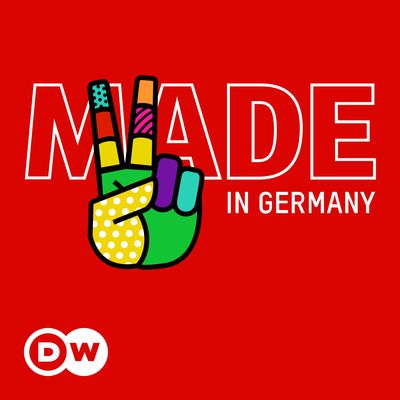In a rapidly changing world, MADE in Germany examines the risks and benefits of digitalization and its impact on the way we work, what we earn and how we live.
http://www.dw.de/dw/0,2142,3066,00.html?maca=en-podcast_made-in-germany_en-2108-xml-mrss
Gesamtlänge aller Episoden: 4 days 17 hours 30 minutes
Pay or get out - how investors drive out tenants
Real estate companies are investing heavily in rental apartments in Berlin. More and more tenants in the city are being displaced because they cannot afford the rent following renovations. The properties can then be sold at a tidy profit.
Hong Kong - life in 3 square meters
Hong Kong's property prices are notoriously high. Many people live in cramped, inhumane conditions. Architects and creative businesses are looking for ways to make cities livable places for the future.
Bye to big houses - mini is the future
Housing in cities is growing scarce, and rental prices are soaring. That's why some people are looking for alternatives. The Tiny House movement started in the US. The buildings are just a few square meters in size.
Smart City - urban digitalization
Hamburg's digitalization is in full gear. Smart traffic lights react to congestion and communicate with buses. The technology offers citizens new ways of getting around without a car.
Talk with project developer Philipp Bouteiller
As a project developer, he thinks digitalization could make urban planning more socially viable and sustainable. Philipp Bouteiller is responsible for the transformation of Berlin's Tegel Airport into a residential and business district.
Startup challenges in Mongolia
After several years abroad, Khulan Davaadorj returned home to Ulaanbaatar and founded an organic cosmetics company. What hurdles did she have to clear to get her start-up off the ground?
Don't call me bossy: Women and engineering
Why do so few women pursue careers in engineering? Cristina Cubas asks Juliane Siegeris, professor of computing and economics at the University of Applied Sciences in Berlin.
Top marks: The Elisabeth Selbert School
The Elisabeth Selbert vocational school is Germany's 2017 School of the Year. Around 2,000 students from 34 countries attend the Elisabeth-Selbert-Schule in Hameln. Why was this vocational school awarded?
Student revolt!
Hans Anand Pant is the head of the German School Academy and a leading expert on education research. He'd like to see a transformation of the school system, but says it has to come from the schools themselves.
Teaching for career changers
There will be a shortfall of 24,000 teachers in Germany's state schools by 2025. So now it's been made much easier for people who didn't train as teachers to qualify and change careers. But this retraining scheme is trickier than it sounds.
